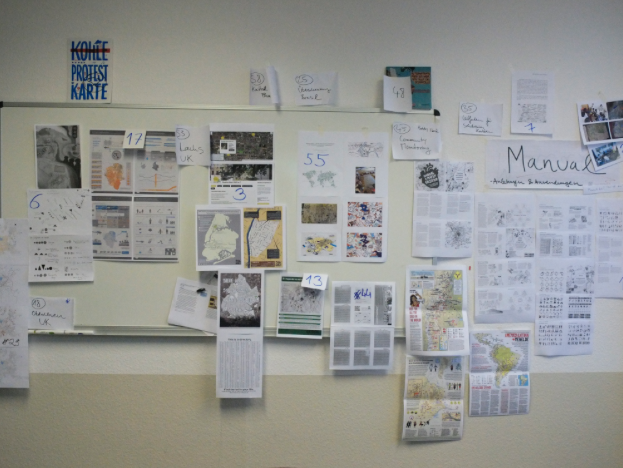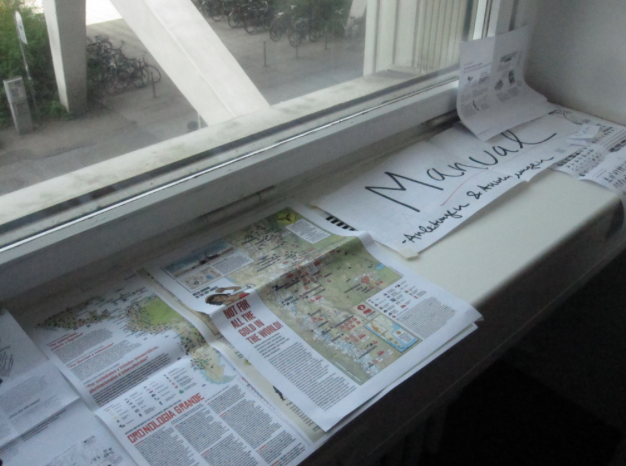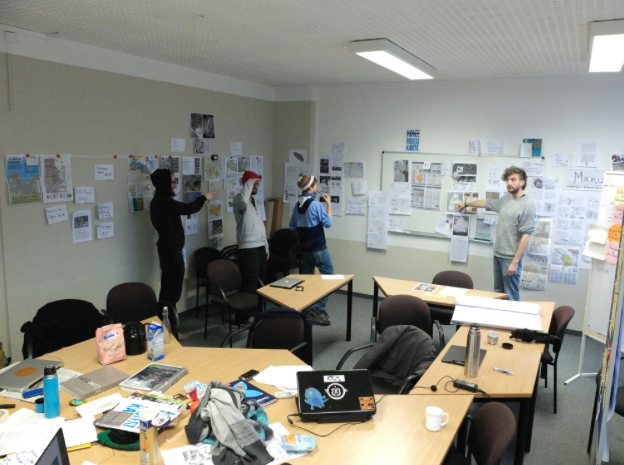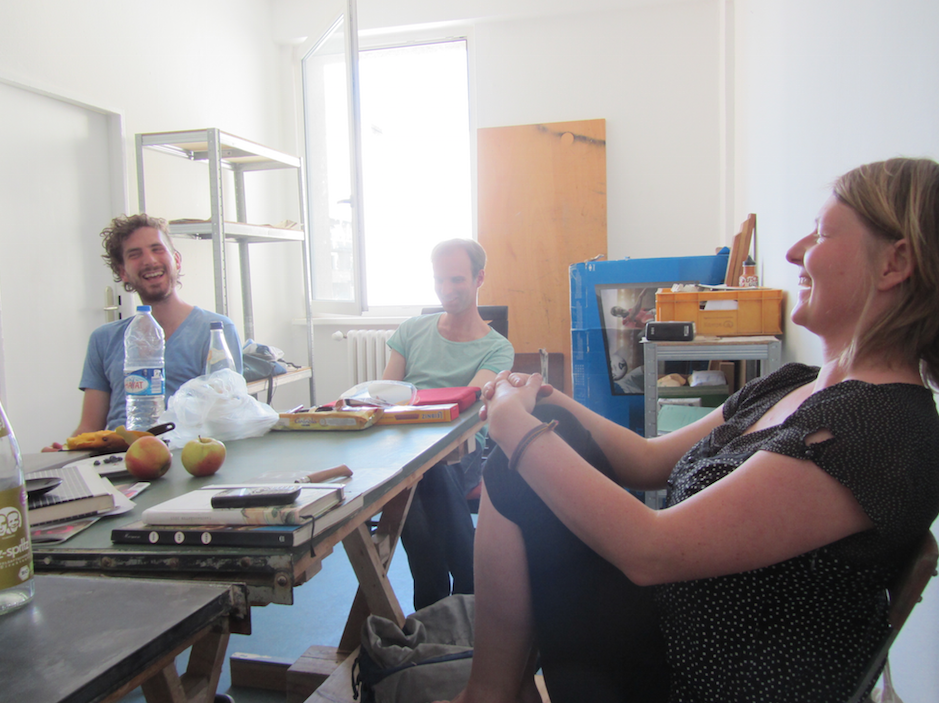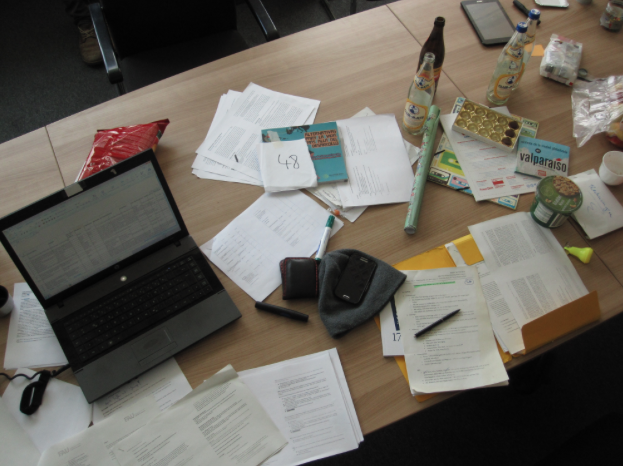Hello Everyone,
Hola tod@s! Por desgracia, no tenemos las capacidades de manejar la comunicación entera en español (o portugues, frances…). Por favor síguenos en facebook, kritische-karten.net y también nos escribe con cualquier pregunta. E-Mail: kritische-karten@posteo.de Lento pero Avanzo l@s editor@s
about two years ago we, a group of activists and academics, started the project of creating a “Critical Atlas“. Some of us are part of http://orangotango.info/, others of http://kritische-geographie-berlin.de/. We were overwhelmed by the general response, the number of maps that reached us and by the interest in the project which does not seem to decrease. We are writing this newsletter, to keep you up to date, to inform you about our next steps and to ask for your support.
Follow us
For future updates please follow us on facebook.
We are slow (but steady wins the race 😉
All of us involved in the editing process are working voluntarily on the “Critical Atlas” alongside with (ir)regular wage labor, studies, research projects, activism, cultural activities etc., that’s why the editing process is advancing not too fast.
For more detailed information on the following points, please see the corresponding paragraphs.
- The selection of the maps is concluded. We selected nearly 50 contributions – trying to bring together different approaches of counter cartographies.
- Alongside with the Atlas, there will be a website. Everyone interested in the Atlas will be able to download the book free of charge.
- We financed the Atlas? We received money from Transformap, Foundation Antstiftung as well as the Rosa Luxemburg Foundation.
- Currently we are looking for a publisher – any hints on who might be interested in publishing the Atlas are welcome.
- Do you want to support us? We need help in proofreading, as most of the contributors are not native English speakers … If you are interested, keep on reading!
The selection of the entries is concluded!
During the last year we read through all the maps / texts / projects and selected nearly 50 contributions. We tried bring together different approaches to counter cartographies. Thereby, some regions and topics are more represented than others. We assume that this has two reasons: first, our network did not reach all regions and second critical cartography is not a popular discipline in every part of the world. Anyway, we are very happy with the maps we have received and the selection we managed to make. Among others, this selection includes maps / texts / projects about resistance against mega mining in Argentina (Iconoclasistas), mapping of a refugee camp in Lebanon (Balloon Mapping), indigenous territorial struggles in Brasil (Nova Cartografia da Amazonia), digital inequalities (Mark Graham), sexual harassment in Kairo (Harass Map), the Environmental Justice Atlas, Paracartography (John Krygier & Denis Wood), commercialization of possible public space (Philippe Rekacewicz) and militant mapping (Counter Cartographies Collective). Besides the maps and projects, we gathered contributions for a “manual chapter”. We would like to understand the Atlas not only as a book that exhibits critical maps and projects, but also as a medium to motivate people to make their own maps.
There will be a new website!
Currently we are curating the contributions and putting everything together into an Atlas. Alongside with the book we want to publish a website on which the maps / projects / texts can be seen and the Atlas downloaded for free. Meanwhile you can check out the current webpage: http://kritische-karten.net/
We financed the Atlas?
We applied for funding at different foundations and received already money from Transformap, the Foundation Antstiftung and the Rosa Luxemburg Foundation. Besides we are planning on a Crowdfunding campaign and keep applying for money from various foundations. If you have any hints which foundation could be suitable to support the Atlas financially or ideally, please let us know.
We’d like support with finding a publisher!
As we received so many contributions and positive feedback we are optimistic that the “Critical Atlas” is going to be a success. At the moment we are searching for a good publisher. We finished the first dummy of the Atlas and are already in contact with some publishers, but we still need support. If you have any recommendations regarding possible publishers, please let us know.
Interested in proofreading?
Finally, we reach out for your help to support us in proofreading the contributions. The Atlas will be published in English. However, English is not the native language for many of the authors. So if you know anybody interested in supporting us with proofreading, let us know.
That’s it for now. If you have any questions, suggestions or critique, please contact us! Best wishes from Berlin, The Editors
